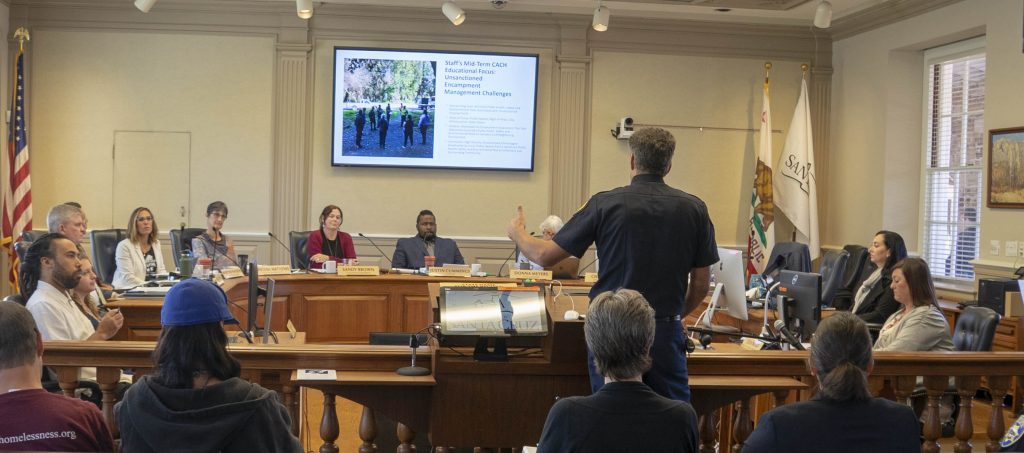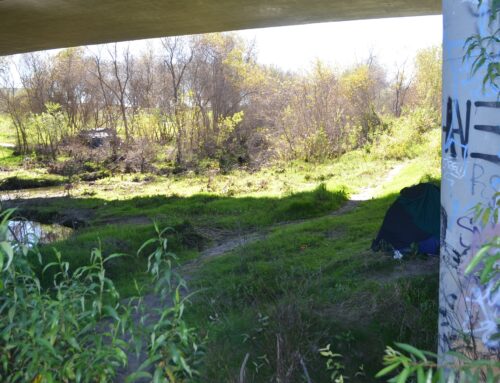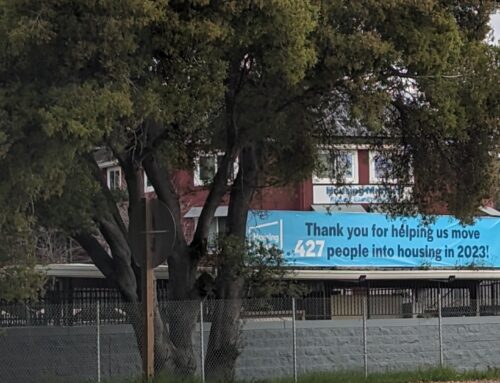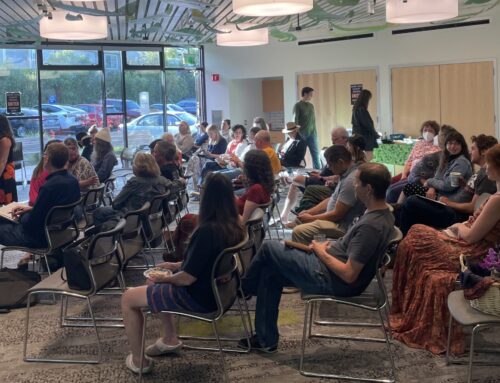
SANTA CRUZ >> Santa Cruz leaders on Tuesday agreed to expand laundry and shower services for the homeless while taking steps to allow the city to close homeless camps in sensitive areas such as watersheds, walkways and places with high fire risks.
The Santa Cruz City Council voted 6-0 to advance eight of 22 recommendations brought by the Community Advisory Committee on Homelessness.
Vice Mayor Donna Meyers, who wrote the motion, said the city should prepare for new state funding to address homelessness. Cities have a limited capacity to address homelessness without help, Meyers said.
The Community Advisory Committee on Homelessness was formed by the city council last year. It has 13 volunteers mostly appointed by city council consensus. Tuesday, its co-chairs presented its second of three sets of recommendations. The committee is scheduled to disband in April after its final report.
The recommendations that advanced Tuesday included:
- A three-month pilot program for shower and laundry services with case management, not to exceed $10,000.
- Fund a separate program for laundry and towel services through the Association of Faith Communities’ shower/laundry program (not to exceed $2,500).
- The creation of new draft guidelines by May on what the city does with confiscated property, with analysis of best practices.
- Increase the number of vehicles allowed to park overnight in sanctioned safe-parking programs, from three to five vehicles. A city council resolution could allow more than five vehicles in government-owned lots.
- New city-sanctioned shelters and safe-sleeping sites should be staffed and include homeless clients in site management, operation and governance.
- By the end of March, the city attorney is expected to draft an amendment to the city’s camping law that would outlaw overnight and daytime camps “in sensitive and at-risk areas,” according to the recommendation. Such areas include roads, walkways, private property, areas with imminent fire risk, areas within the city’s safe drinking water/watershed habitat map and areas within the city’s environmentally sensitive habitat map.
- The amendment to the camping law would also prohibit “high density” unsanctioned camps, based on number of occupants or square footage.
- The city council also wants the law to require the city staff or law enforcement to give information about legal homeless shelters such as at the Armory, before moving or citing people who sleep in restricted areas.
The city council did not advance the committee’s recommendation to spend up to $10,000 for a consultant to run a community engagement program to inform where safe sleeping sites should be placed in the city.
Instead, the council directed the committee to focus its final three meetings on:
- Policy considerations around safe-sleeping sites
- Program models that can be part of the Santa Cruz County Focus Strategies Plan
- Regionally-focused homeless service strategies
- Leveraging all available county and state funding on the horizon
The committee also will hold another community listening session on a date to be decided.
The Santa Cruz County Focus Strategies Plan is due by April and is expected to be a coordinated, systematic plan for how the county responds to homelessness.
Gov. Gavin Newsom has released $650 million in state emergency homeless aid. His proposed budget included more than $1 billion to tackle homelessness.
Councilmember Drew Glover was out of town and absent from Tuesday’s meeting.
Kara Meyberg Guzman is the CEO and co-founder of Santa Cruz Local. Prior to Santa Cruz Local, she served as the Santa Cruz Sentinel’s managing editor. She has a biology degree from Stanford University and lives in Santa Cruz.





